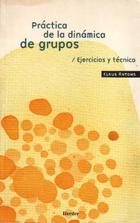The practice here proposed refers to structured collective situations, in which through the group leader are problems and conflicts simulated. The handling of these situations model encourages participants to observe themselves, primarily from its reciprocal patterns of activity, through which they get to know themselves and others in new forms of behavior, which can occur not assimilation only cognitive, but also significant changes and the mode of action of the subject. Most of the exercises are from the experimental test methods in social psychology and psychodrama, sociometry, psychotherapy, game theory, organizational science and other specialized disciplines. The simulation game character common to them all gives them a specific value of fun, which encourages creativity and introduces tension and dynamism in the groups. The book itself is a systematic compendium provides an over...read more
All book titles by this author
|
Title |
Price | ||
|---|---|---|---|
|
|
Práctica de la dinámica de grupos Author: Klaus Antons Publisher: Herder Collection: Herder: Biblioteca de Psicología |
$1,005.00
30%$703.50 |
Shopping cart
Loading cart
Important notices
|
|
Recordando a André Rouillé: Su legado en la fotografía André Rouillé 1948 - 2025 |
|
|
Libros de filosofía y co. Disponibles en Librería Herder |
|
|
Revista Filosofía & Co. nº 9 Nueva revista de filosofia divulgativa y actualidad |
|
|
"Espacios de la filosofía" - Mauricio Beuchot - Novedad Herder México |
|
|
Revista Filosofía & Co. nº 8 Nueva revista de filosofia divulgativa y actualidad |
Pay safely with:


In the webshop
New
|
|
Revista Filosofía & Co. No. 15 70591 $200.00 -0.00% $200.00 |
|
|
El bestiario de Michel Foucault 70404 $749.00 -15.00% $636.65 |
|
|
La fuerza de los fuertes 70405 $519.00 -15.00% $441.15 |
|
|
Su Majestad 70410 $319.00 -15.00% $271.15 |
|
|
El arte de la fantasía 70407 $759.00 -15.00% $645.15 |
In the press
Promotions
|
|
Panorama A1.1, Deutsch als Fremdsprache Übungsbuch 36726 $235.00 -35.00% $152.75 |
|
|
Diccionario de términos filológicos 70241 $900.00 -25.00% $675.00 |
|
|
Prosa y poesía. Homenaje a Gonzalo Sobeja 70242 $1,755.00 -25.00% $1,316.25 |
|
|
Lingüística española aplicada a la terapia del lenguaje 70239 $300.00 -25.00% $225.00 |
|
|
Introducción a la filosofía 70243 $620.00 -25.00% $465.00 |






